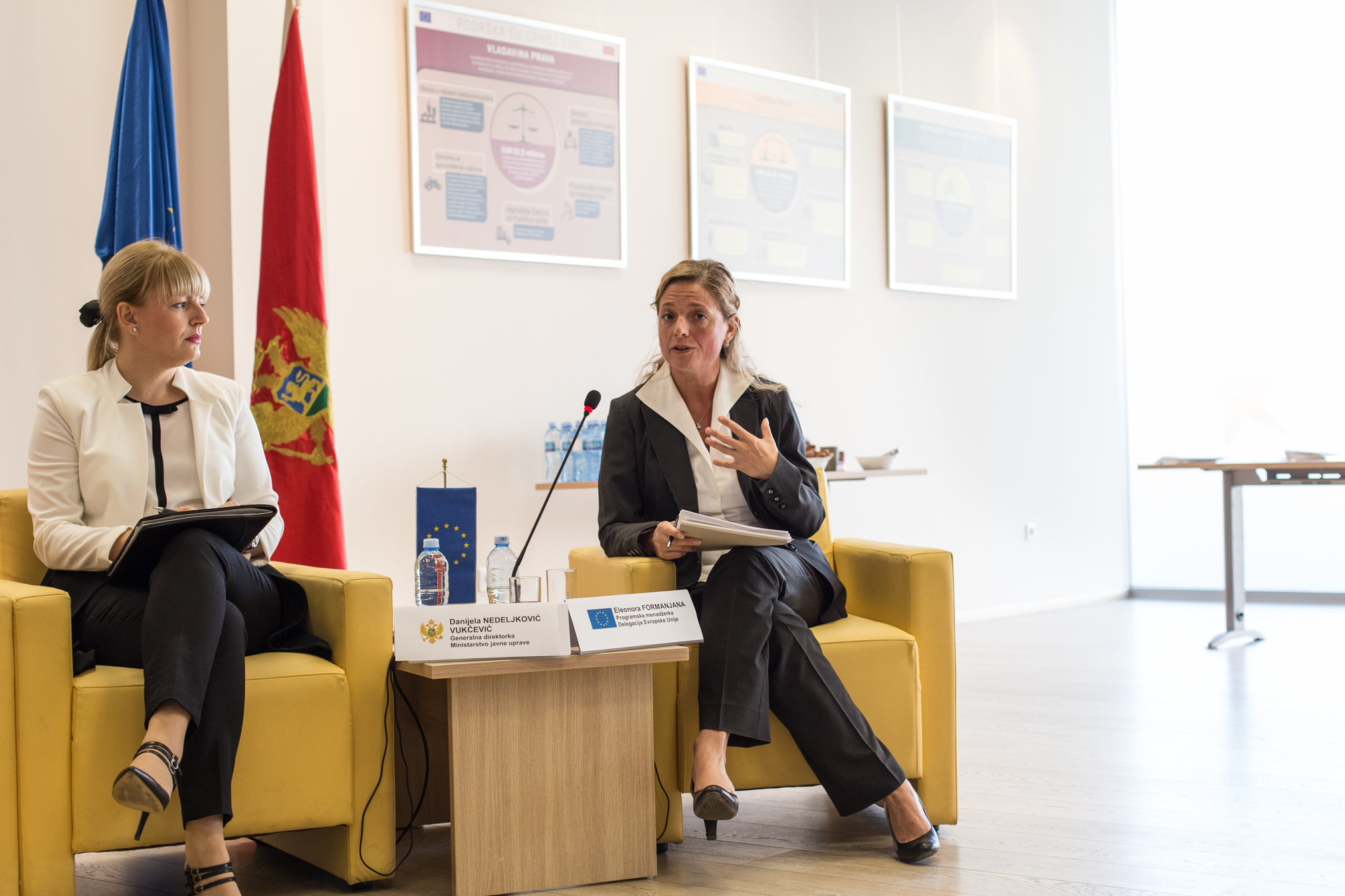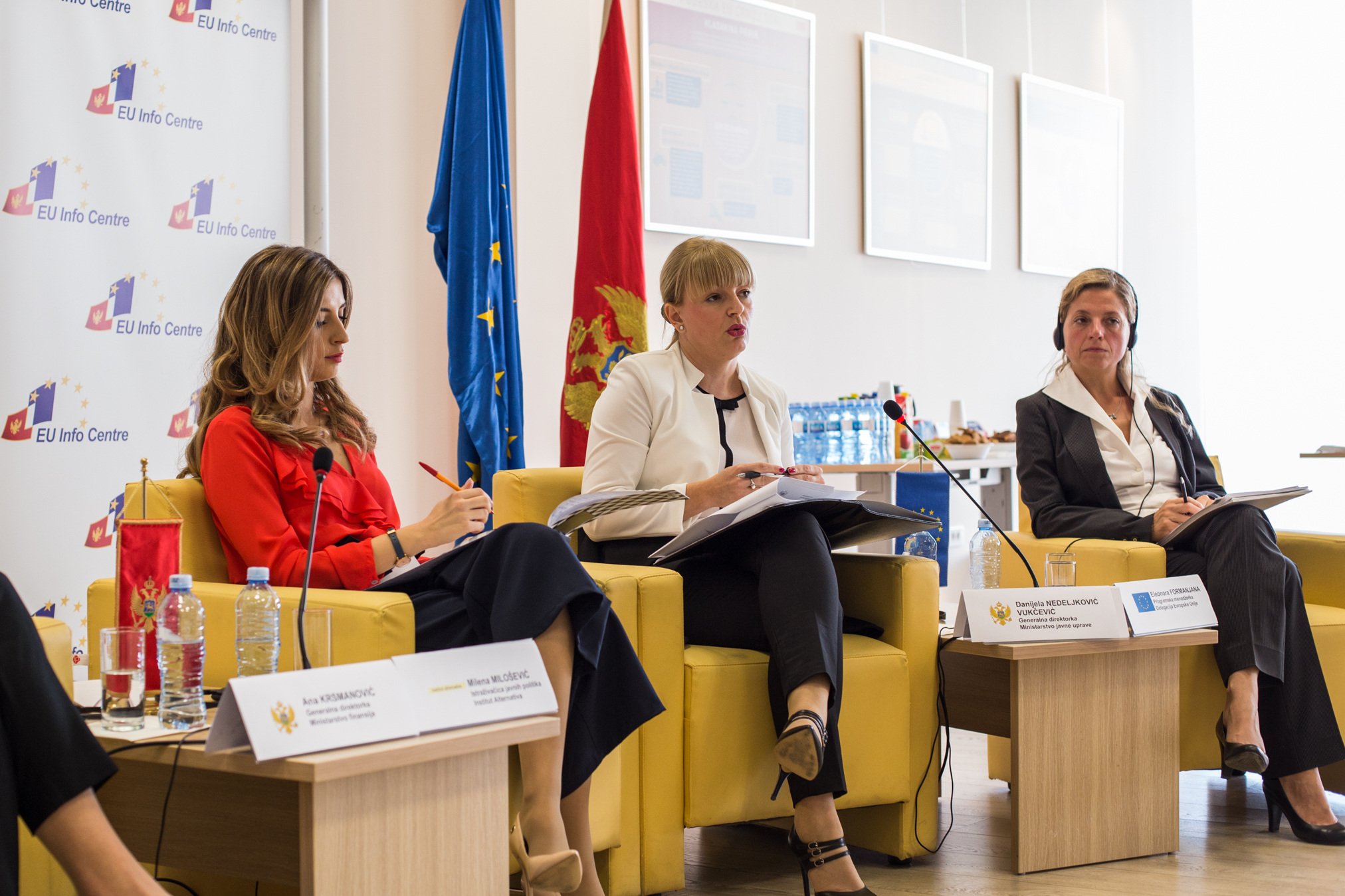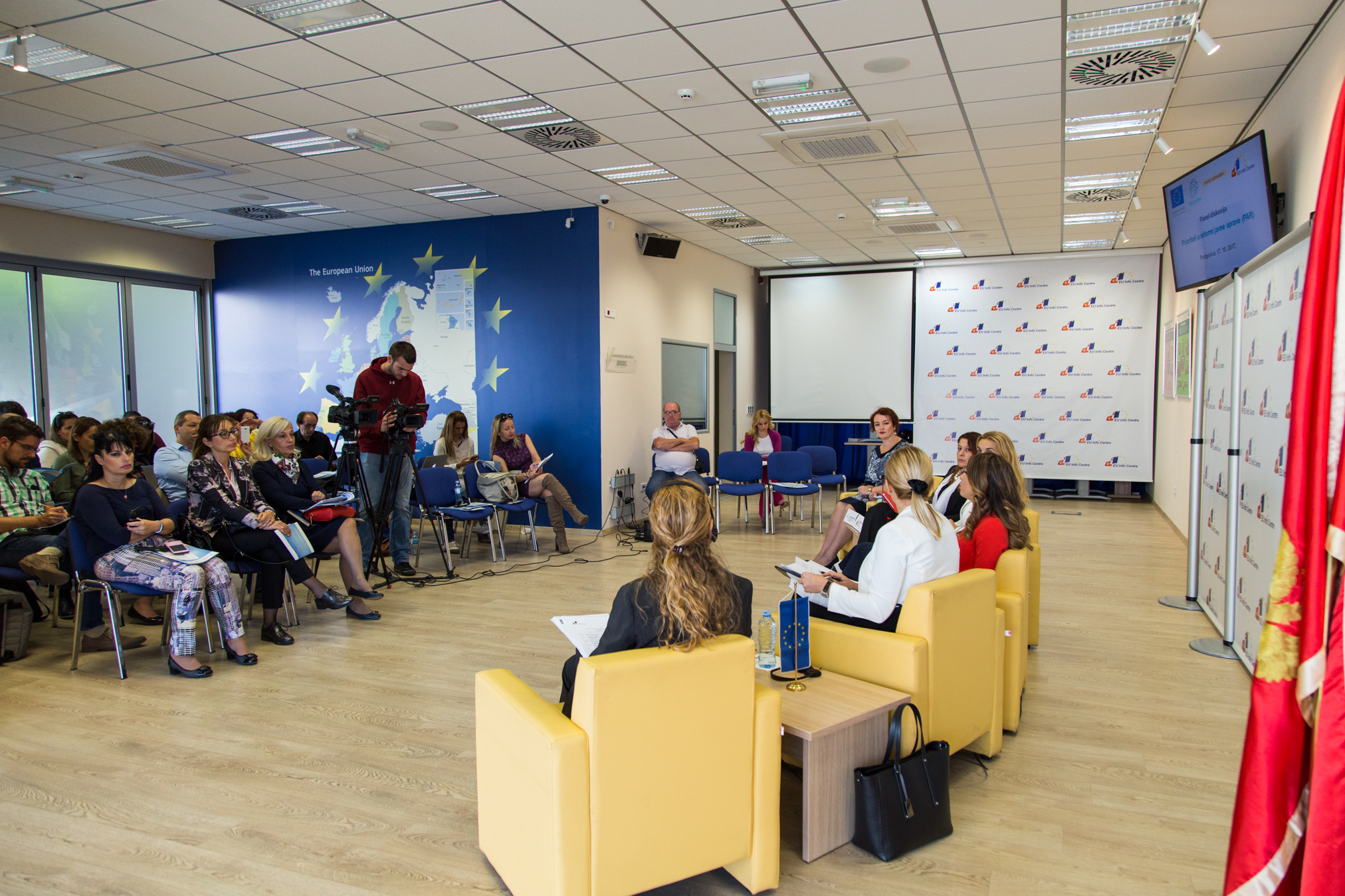PODGORICA, 17 October 2017 – Responsibility at all levels is a key concept for establishing good governance practices in the state administration in Montenegro – this was a conclusion from a panel discussion on the Priorities of Public Administration Reform (PAR) organised by the Delegation of the European Union and the EU Info Centre, along with the NGO “Institute Alternative”.

Milena Milosevic, public policy researcher at the NGO “Institute Alternative”, noted that the Institute had drafted a report on the implementation of this reform in June, under the project “Civil Society for Good Governance: To Act and Account”, supported by the European Union.
“What is particularly emphasised in our research is a lack of responsibility and the mechanisms that should improve this. You can go to the Ombudsman’s website and look at the latest complaints from citizens about the work of the administration. For example, one citizen, ever since 2003, so for fourteen years, has not been able to do anything with his property because the Real Estate Agency is delaying the procedure,” said Milosevic.
Danijela Nedeljkovic-Vukcevic, the Director General in the Ministry of Public Administration, said that the state administration and civil society often see various results in different ways, which is natural. “However, the operational conclusions of the Special Group, published for the first time on the MPA website, are just some of the indicators of the openness and readiness of the administration to work on reform seriously and transparently.”
“We must work on improving the awareness of executives about how well they are working. Also in the focus of the ministries’ attention is work on the updating of the Central Personnel Records, without which we cannot have quality human resource management, and it is precisely the issue of establishing the conditions for connecting this database with the Ministry of Finance’s database on wages, which is a prerequisite for the efficient tracking of the number of employees and the realisation of the optimisation process,” said Nedeljkovic-Vukcevic.
Ana Krsmanovic, the Director General in the Ministry of Finance, said that civil society must carry out the job of monitoring and that pointing to external problems will always be helpful.
“Change won’t happen overnight, but I think that gradually we are seeing an improvement in the quality of the administration. We don’t have to have tectonic changes in order to fix the situation,” Krsmanovic said.
Ana Perovic-Vojinovic, a judge of the Administrative Court, said that the new Law on Administrative Procedure and the Law on Administrative Disputes are introducing new legal remedies: “In the context of PAR and the tendency to shorten the duration of administrative disputes, and as someone who applies the law on a daily basis, I must say that although we are managing to have both efficiency and quality, it is not always easy. The administration should also help to establish a balance between these concepts.”
Nedeljkovic-Vukcevic promised that the Ministry of Public Administration and the Ministry of Finance would know how many employees there are in the public administration by the end of October of this year, in answer to questions from the media about when finalisation of the methodology for determining the optimal number of employees in the administration would happen.


